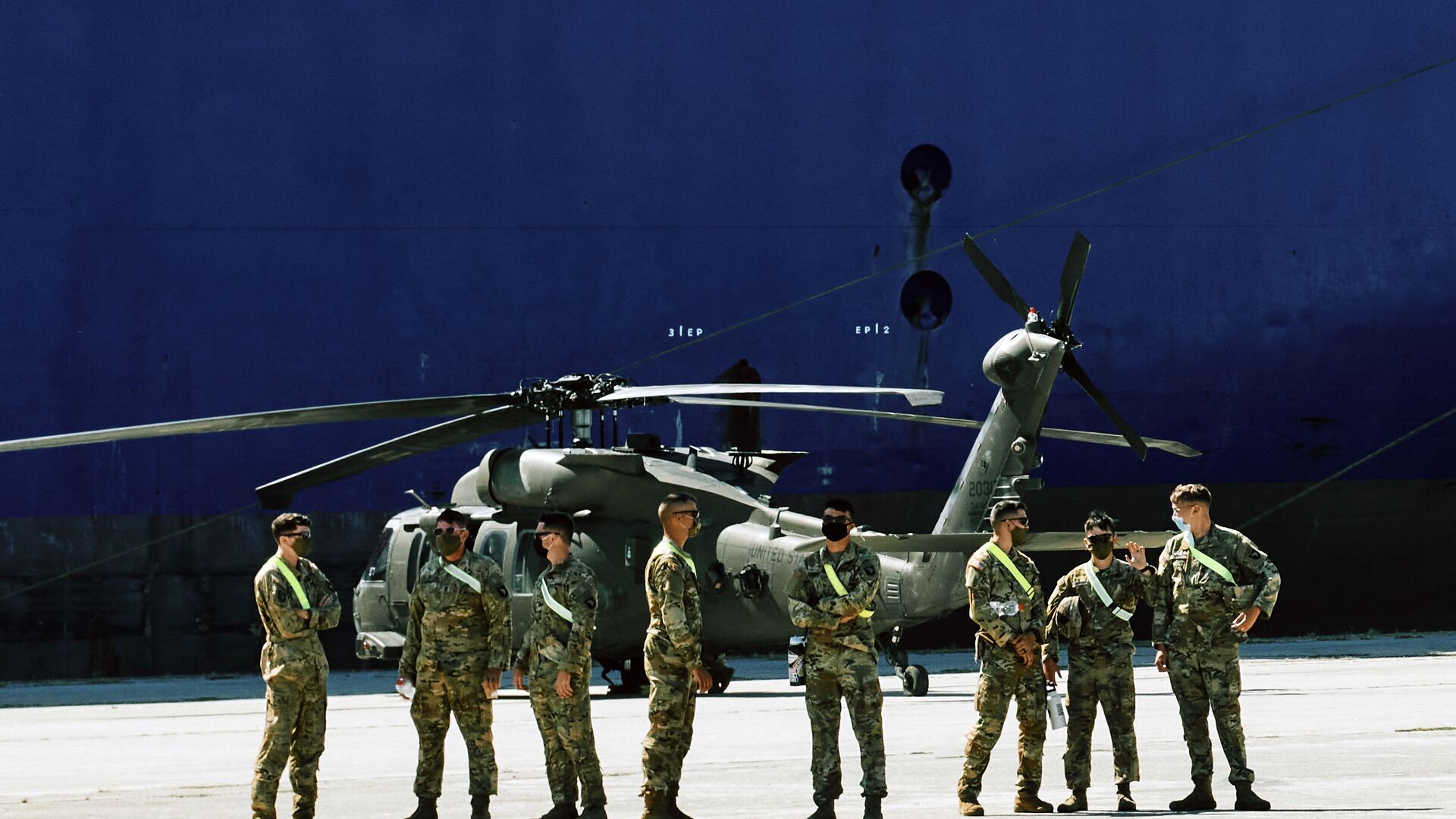The military training programs held by the US for foreign military servicemen are likely to intensify under the Biden administration amid military competition in the Asian-Pacific, the Military Times reported, citing experts.
According to the report, the Biden administration is likely to make international military training programs a core element of US foreign policy in the foreseeable future.
“Of all things to be cut in the United States defense budget, this will likely not be one of them, primarily, because it seems very clear from Biden’s appointees that the new administration is very concerned with shoring up relations with partners and allies," Jonathan Caverley, a professor of strategy at the Naval War College, said.
According to Caverley, the Biden administration is likely to concentrate on "competition with China, rather than confrontation," and that might turn into increased training for military personnel of Asian countries, reflecting the shift in the programs' ethnic and regional composition of studying militaries.
"Rather than force on force, it’s more of a competition in third party locations, very similar to the Cold War,” he said. “You will see that fewer trainees will come from Afghanistan, from Iraq, from various countries in the Gulf, and you’ll see much more of an emphasis on Asian states.”
Foreign military programs faced heavy criticism in 2019 over the murder of three sailors and wounding of eight more committed by a Saudi military at Naval Air Station Pensacola, Florida, which the FBI called a terrorist attack. The shooter was part of the initiative for International Military and Education Training (IMET), a joint initiative of the State and Defense Department that annually brings around 6,000 foreign military personnel to train at US military facilities.
Esper requested a review of the programs shortly after the incident as a result of strong demands from lawmakers for the Pentagon to reassess international military training programs, but stated he supported them in general.
The Department of Defense had suggested a 10 percent decrease in the IMET for the fiscal year 2020, before the incident. The initial budget of approximately $115 million was accepted by the Senate, however.
Reassessment of Strategic Goals
According to Renanah Joyce, a postdoctoral fellow at Harvard University's International Security Program, the Department of Defense has since "taken steps to improve its assessment, monitoring, and evaluation of foreign military training programs, but still really struggles to answer pretty basic questions about the return on investment."
"One of the reasons why the US government chronically struggled to answer questions about the return on investment is that it tries to achieve so many things with the same tool,” Joyce said.
She also added that the Biden administration should “think really carefully about not treating training as a sort of silver bullet, but to think clearly about what the most important strategic goals are."
Despite the changes in priorities under President Donald Trump, foreign military training programs are still in the spotlight of the Defense Department international cooperation. In 2020, over 31,000 foreign military students were educated by the Pentagon in its schools. It also sent 55 military advisors to 13 allied countries.
Last year, the Senate Committee on Appropriations recommended that the State Department adopt a more comprehensive monitoring and assessment plan for IMET, as well as keep a record of the "subsequent military or defense ministry career and current position and location post-program." It also encouraged more women to be included in the program.


